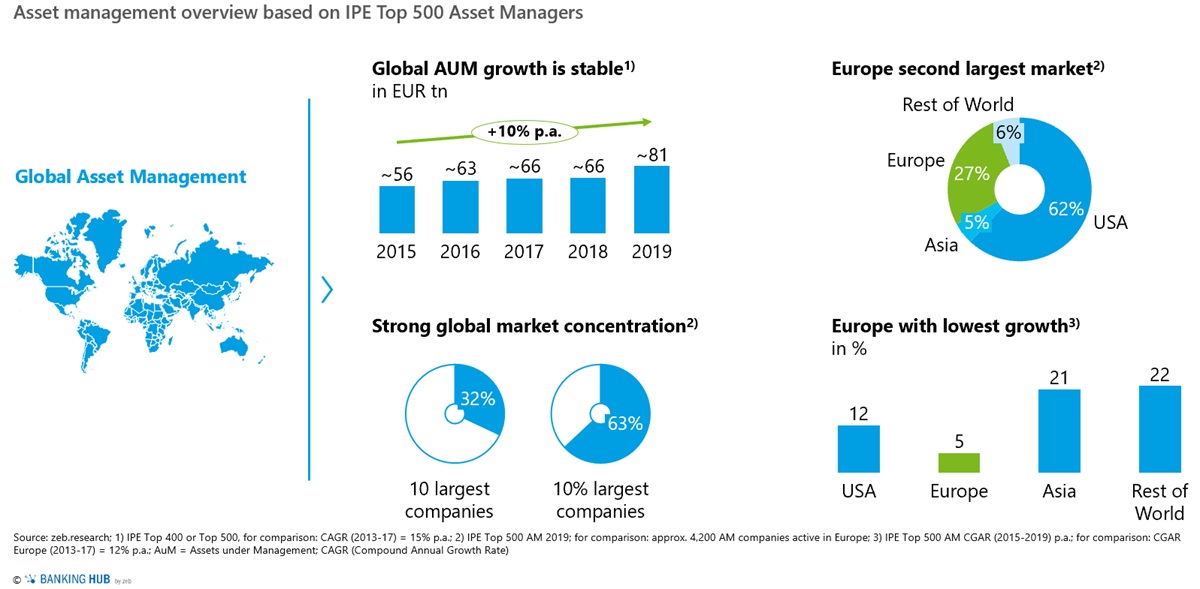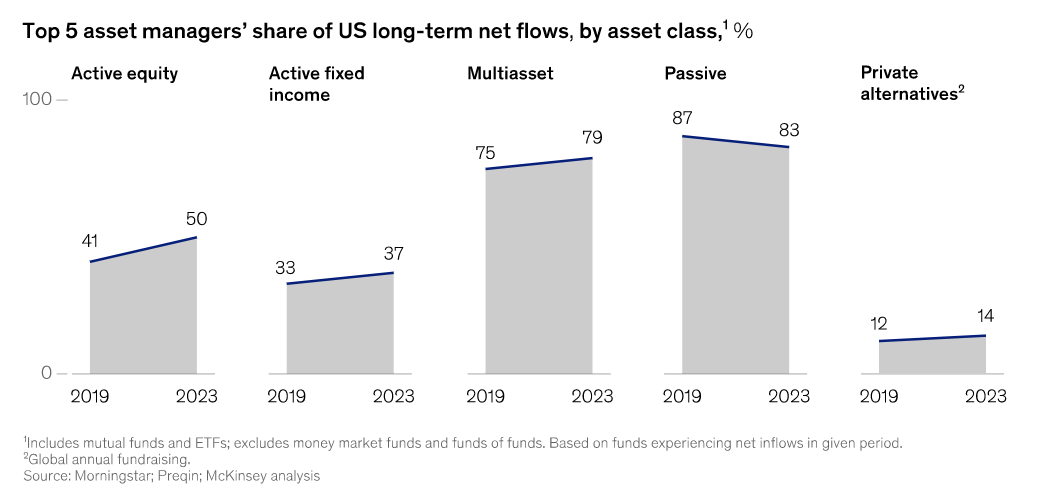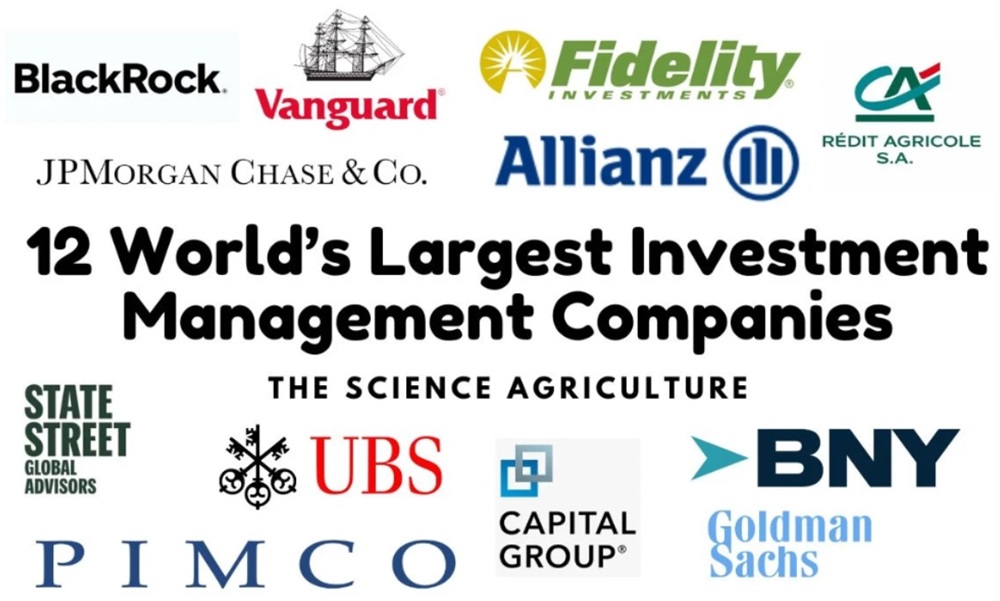So, how can you make sure your money is working as hard as it can for you? What do successful investors do to grow and protect their wealth over time? The answer lies in asset management—it's the key to making your investments work smarter and securing your financial future.
Whether you're an individual looking to build your wealth or a business managing a big portfolio, asset management is about more than just picking a few stocks or bonds. It's a whole approach that mixes strategy, expertise, and planning to manage risks, maximise returns, and navigate the ups and downs of the financial world.
Asset Management's Definition
Asset management is the foundation of how investors manage their money, whether it's for personal growth, business needs, or planning for retirement. But what does it really mean, and why is it such a big deal in the financial world? Simply put, it's about professionals managing investments for clients. These clients could be individuals, companies, or institutions, all aiming to grow their wealth and hit specific financial goals.
At its core, asset management covers a range of investment options—stocks, bonds, property, and even things like commodities or private equity. It's all about putting the right assets in the right places at the right time. Asset managers play a key role in this: they look at their clients' financial situations, come up with investment strategies, and manage portfolios, tweaking them as the market changes.
Asset managers juggle lots of roles: from handling retirement funds for individuals to advising big institutional investors on where to put their money. The secret to successful asset management is understanding what the investor needs and staying on top of the bigger financial picture.

Asset Management's Types of Services
When it comes to managing assets, there's no "one size fits all." Whether you're a seasoned investor or just starting to build your wealth, the number of asset management services out there can feel a bit overwhelming. However, understanding the different options and how they match up with your goals is key.
From wealth management, which looks after the financial well-being of individuals, to investment management and corporate asset management, which focuses on businesses, each service offers a different way to make the most of your assets. By choosing the right one for you, you can make sure your money is being handled in the most effective way.
Wealth management is a full-service offering, mostly aimed at high-net-worth individuals (HNWIs). It's not just about managing investments—it includes everything from financial planning to tax advice, estate planning, and retirement strategies. Wealth managers take a personal approach, focusing on long-term growth and protecting wealth. They're experts in navigating the complexities of managing larger asset bases and making sure clients' financial goals are achieved over a lifetime.
On the other hand, investment management is all about growing portfolios by carefully selecting assets like stocks, bonds, and other financial products. Investment managers use research, data, and market trends to make smart decisions about where to invest. This service is perfect for investors who like to have a bit more control over their wealth and want to optimise returns while managing risk. Whether you're into a hands-on approach or prefer a more passive one, the end goal is always the same: growing wealth in the most efficient way.
For businesses, asset management is a bit broader, focusing on the management of a company's financial resources, including investments, real estate, and other assets. Management of corporate assets is all about improving the company's financial health, finding good investment opportunities, and managing risks. It's especially important for larger firms or institutional investors, helping them align financial strategies with business goals. This service includes things like cash management, risk hedging, and even advisory services for mergers and acquisitions (M&A), making sure corporate funds are used in the smartest way possible.
Whether you're looking after personal wealth, investment portfolios, or corporate assets, asset management provides the right strategies and expert guidance to help you maximise returns and manage risks across different financial situations.
Asset Management's Value Creation Strategies
After looking into the different types of asset management services out there, it's clear that each one is designed to meet the specific needs of individual investors, wealthy clients, or businesses. But just offering these services isn't enough—what really matters is how asset managers help grow and protect their clients' wealth.
A question that comes up for most investors is: "How do asset managers actually create value?" The answer is that they add value in several ways, using smart strategies to optimise investments, manage risks, and make sure their clients’ portfolios perform well over time.
One of the most important things asset managers do is decide how to allocate assets. This means figuring out how to spread investments across different types of assets—like stocks, bonds, property, commodities, and so on. A solid asset allocation plan helps clients ride out financial ups and downs, take advantage of opportunities, and get the best possible returns. Asset managers consider things like risk tolerance, investment timelines, and the current market conditions when putting together a diversified portfolio. The goal is to spread out the risk while giving the portfolio the best chance of growth.
At the heart of good asset management is risk management. Asset managers keep a close eye on their clients' portfolios, adjusting investments to reduce risk and protect capital, especially when the markets are volatile. One of the most common tools for managing risk is diversification. By spreading investments across different asset classes, sectors, or regions, asset managers can help reduce the impact of market fluctuations. When done right, this can lower the risk of big losses, which is especially important during uncertain market conditions.
In the end, the true value of an asset manager often shows in how well the portfolios perform. But measuring performance isn't just about tracking returns—it's about looking at how the investments are doing compared to targets, goals, and the overall market. Asset managers use advanced tools and analytics to see if their strategies are working and make changes when needed. Clear and regular reporting ensures clients are always in the loop on how their assets are doing and whether any adjustments are needed to stay on track with their long-term goals.

Asset Management Firms for Different Investment Objectives
Having explored the fundamentals of asset management and the various services it encompasses, the next crucial step is selecting the right firm to align with your investment goals. Different objectives call for tailored strategies and expertise, so identifying firms with strong reputations and proven experience in specific areas is key to making an informed decision.

The following table highlights some of the most reputable asset management companies, offering recommendations based on different investment goals. Whether you're looking for long-term capital growth, wealth preservation, or retirement planning, these firms provide professional investment solutions to help you navigate the complexities of the market and achieve your financial objectives.
Asset Management Firms for Different Investment Objectives
| Company |
Strengths |
Recommend for |
| BlackRock |
Largest global manager |
Institutional investors, diverse solutions |
| Vanguard |
Low-cost, passive investing |
Cost-conscious, long-term investors |
| JPMorgan |
Strong research, global reach |
Active and passive investors |
| Fidelity |
Service-oriented, retirement focus |
Retail, retirement-focused investors |
| Allianz |
Global, sustainable investing |
ESG-focused, global investors |
| Crédit Agricole |
European expertise |
European investors, responsible funds |
| State Street |
Leading in ETFs |
Institutional, passive strategies |
| PIMCO |
Fixed income expertise |
Income-focused investors |
| UBS |
Global reach, sustainable focus |
High-net-worth, sustainable investors |
| Capital Group |
Active equity management |
Growth-oriented, long-term investors |
| Goldman Sachs |
Alternative investments |
High-net-worth, bespoke solutions |
| The Science Agriculture |
Sustainable, agricultural focus |
Impact investors, agriculture-focused funds |
In conclusion, asset management is not just about choosing the right assets; it's about using sophisticated strategies to maximise returns while carefully managing risk. Whether you are looking to grow your wealth as an individual, manage corporate assets, or ensure that your investment portfolio is robust, understanding the services and strategies asset managers offer is key. With the right manager, the journey towards financial security can be a lot smoother, helping you not only achieve your goals but also navigate the complex world of investing with confidence.
By carefully selecting the right asset management firm and understanding how they operate, you’re one step closer to making smarter investment decisions that suit your needs and objectives.
Disclaimer: This material is for general information purposes only and is not intended as (and should not be considered to be) financial, investment or other advice on which reliance should be placed. No opinion given in the material constitutes a recommendation by EBC or the author that any particular investment, security, transaction or investment strategy is suitable for any specific person.





























